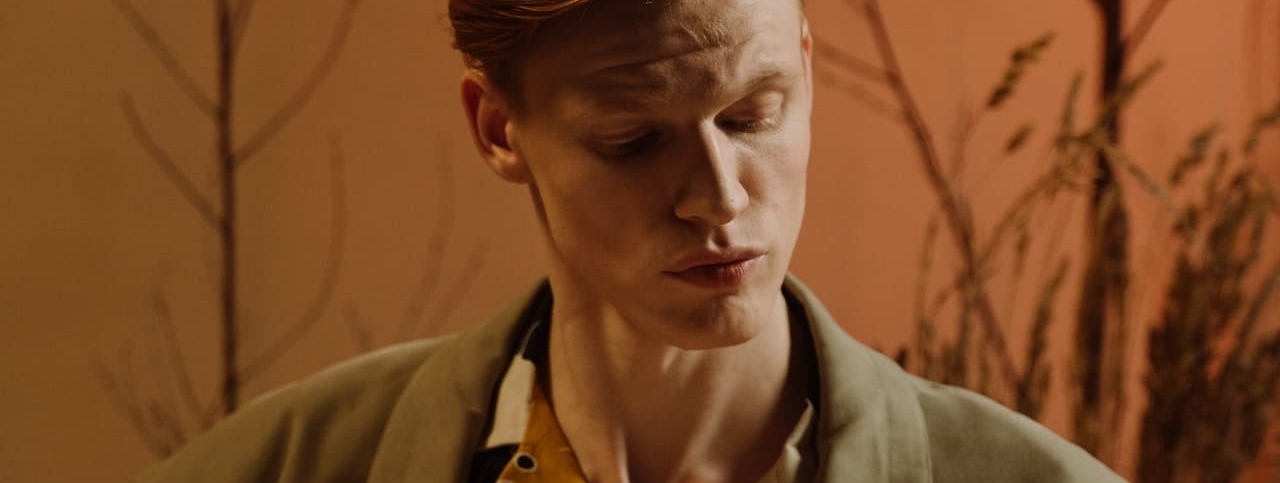Learning English is not as hard as many people believe it to be, and the reason why it is simpler and easier to learn than other languages is the ability to have fun in the process of learning, which is exactly what you will experience while learning the Conditional Tenses.
So, in this article, you will learn:
- What are the conditional tenses?
- How to use the different forms of the conditional tenses?
- How does the mixed type conditional work?
- Learn English online with the General English course by GlobalExam!
Ready to begin? Let’s start.
Dedicated grammar sheets for revising every aspect of English grammar specific to any English exams such as the IELTS, TOEIC, TOEFL, CAE, FCE, BRIDGE, BULATS (Linguaskill) or even BRIGHT ENGLISH. Indeed, we have gathered a complete list of grammar worksheets on numerous topics:
- Comparatives & superlatives
- Gerunds vs infinitives
- Linking words
- Modal verbs
- Nouns
- Passive vs active + causative verbs
- Phrasal verbs
- Present perfect
- Standard expressions & confusing words
- Present tenses
- Prepositions
- Adverbs
- Conjunctions
- Perfect tenses
- Simple or progressive aspects
What Are Conditional Tenses: Definition And Examples
The conditional tenses are used to express a condition and reflect the future tense of what could happen, might have happened, and we wish would happen. There are five different ways of constructing conditional sentences:
Zero conditional.
First conditional.
Second condition.
Third conditional.
Mixed conditional.
The majority of these sentences start with ‘if’, but sometimes, the negative conditional sentences start with the word ‘unless’ instead of ‘if’. While the positive conditional sentences might begin with the ‘when’.
a conditional sentence is made of an independent clause and a dependent clause. Without the two parts, it will not be considered a conditional sentence.
Here are a few examples to help you have a clearer idea about conditional sentences:
- If I finish my homework, I can have dessert after dinner.
- When the night comes, I feel sleepy right away.
- If your brother watches this movie, he will cry.
- I will cook every day, unless I become a billionaire.
- If you had chosen teaching as a career, you would have been a great teacher.

How To Use The Different Types of Conditional tenses?
We can divide conditionals into 4 categories as they each have their own particular structure and use. Conditional sentences generally have two parts: the condition or ‘if-clause’ and the ‘result’ clause.
If I have time this afternoon, I’ll read over your report.
(condition) (result)
If I had more time, I would join you at the restaurant.
(condition) (result)
If he had been more careful, he wouldn’t have made such a silly mistake.
(condition) (result)
On the Bright, there are frequent questions, especially in Part 5 that try to test your knowledge of this grammar point by giving you a choice of tenses (which don’t correspond to the conditional sentence) in the ‘if-clause’ or by using variants that you may not be familiar with. The examples which follow will hopefully help you avoid falling into the trap!
Learn how To Tse the Zero Conditional
You can use the zero conditional when the time being referred to is the present (now or always), and the situation is possible (and real). Keep in mind that both parts of the english sentence should be in the simple present tense.
Since the zero conditional refers to general truths, the word ‘if’ can be replaced with ‘when’ and the meaning will not change.
| If Clause | Main Clause |
|---|---|
| If + simple present | Simple present |
| If this thing happens, | that thing happens. |
| If it rains, | my car gets wet. |
What is the First Conditional and How To Use It
Generally, we can say that the first conditional talks about a true situation that can most likely lead to a certain result.
Here is how the First Conditional is made:
| If Clause | Main Clause |
|---|---|
| If + simple present | Simple future (will/won’t) |
| If this thing happens, | that thing will happen. |
| If you study, | you will pass your exam. |
If we ask him to change the meeting time, he won’t be happy.
In all conditional sentences, we can switch the sentence around and put the result before the condition (there is no comma separating the clauses, in this case):
He won’t be happy if we ask him to change the meeting time.
Common mistake: Do not use ‘will/won’t’ in the ‘if-clause’
If we
willimprove our marketing techniques, we will raise sales.
🡲 Variations
Instead of ‘will/won’t’ in the result clause, we can also use the imperative or other modal form of the verbs.
- If Sally calls this morning, tell her I’ll call her back after my meeting.
- If there’s a train strike, the candidates may arrive late.
- If we don’t finish preparing the presentation on time, we must tell our manager to delay the meeting.
Unless means ‘if…not’ and refers to the conditional part of the sentence and not the result part.
- If she doesn’t delete some of her emails, her in-box will soon be full.
- Unless she deletes some of her emails, her in-box will soon be full.
We can use ‘provided that/providing’, ‘as long as’ and ‘so long as’ to emphasize a condition.
- I will sign the contract provided that you offer a discount on large orders.
- As long as we work well together, we’ll have no problem succeeding.
Second Conditionals: What Is It?
Second conditionals are used to speak about a situation which is contrary to the fact. In the ‘if-clause’ the past tense refers to something unreal, that you imagine to be real. In the ‘result’ clause, you are referring to a possible future action which in fact is not very probable.
Here is how the Second Conditional is formed:
| If Clause | Main Clause |
|---|---|
| If + past tense | present conditional or present continuous conditional (could/ would/wouldn’t/ might) |
| If this thing happened, | that thing would happen. (but I'm not sure this thing will happen) OR that thing would be happening. |
| If it I spoke German, | I would be working in Germany. |
If I had a bigger budget, I would offer English training to everyone in the department!
(But, unfortunately, I don’t have a bigger budget, so it’s improbable that everyone will get English training.)
🡲 Variations
In this case it is correct to use ‘might’ and ‘could’ instead of ‘would’.
- If they were given a good moving package, they might be willing to move to another country.
- If the terms of the agreement are unacceptable, they could ask us to rewrite it.
If we take the example above about the move and change the sentence to a singular subject, we can see that ‘were’ remains the same. This is the correct grammatical form, even though many native English speakers say ‘If I was’ or ‘If she/he was’.
- If she were given a good moving package, she might be willing to move to another country.
- If I were…
Third Conditional: What Are the Rules?
The third conditional form also speaks about a situation which is contrary to the fact and its result, but in this case we imagine a different past action and a different result.
Here is an example of a past situation:
I spoke with my team about the customer complaints we were getting. We decided on an action plan and put it into place.
Here is how the Third Conditional is formed:
| If Clause | Main Clause |
|---|---|
| If + past perfect | Perfect conditional or perfect continuous conditional (would/wouldn’t + have done) |
| If this thing had happened, | that thing would have happened. (but neither of those things really happened) OR that thing would have been happening. |
| If I had worked hard, | I would have gotten promoted. |
Now taking the example, we can imagine a different past action with a different result:
If I hadn’t spoken with my team about the customer complaints, we wouldn’t have put an action plan into place.
Common mistakes: We do not use ‘would’ in the if-clause.
- If I
would have knownyou were coming, I would have saved you a seat.- If I had known you were coming, I would have saved you a seat.
🡲 Variations
It is possible to write your sentence with ‘could’ or ‘might’ instead of ‘would’.
- If the weather had been better yesterday, we could have eaten outside.
- If we hadn’t sent the quotation so late, we might not have lost the sale.
Another variation found on the Bright is the following:
Had we not made a bid, we would never have obtained the contract.
In this example, the word ‘If’ is replaced by inverting ‘had’ and the subject (If we had…).
How Does the Mixed Type Conditional Work?
The mixed type conditional speaks of a time that happened in the past, and a situation that is still happening in the current present (that’s why it is called a mixed conditional). You can mostly use it to touch on past conditions that didn’t happen with their probable present result.
Here is how the Mixed Type Conditional works:
| If Clause | Main Clause |
|---|---|
| If + past perfect OR simple past | Present conditional or perfect conditional (would/wouldn’t + have done) |
| If this thing had happened, | that thing would happen. (but this thing didn’t happen, which means it is not happening) |
| If the baby had slept, | we would be sleeping as well. |
Practice Your Grammar Skills Online With GlobalExam Worksheets
Have you found verbs in the conditional tense a little complicated? That is normal for any beginner, which is why we dedicated our time, efforts, and experience to create the perfect tool that can help simplify grammar for you.
We are GlobalExam; a training platform that offers lessons, exercises, and practices for 16 different languages to help you make your dream possible of studying, working, and living anywhere in the world.
Once you sign up, you will have access to train for Business English and many language certifications, such as TOEFL, IELTS, and HSK. You can study at your own pace, perform tests in real-life conditions, revise grammar and vocabulary sheets, and follow your progress to help evaluate your strengths and weaknesses. All of this in one platform that is user-friendly, fun, and very efficient.
Soon, you will be able to speak English as if you are a native with great proficiency, rich vocabulary, and perfect grammar. GlobalExam can support you in the level you wish to achieve.
IF you Join us today, we WILL help you reach your goal!



